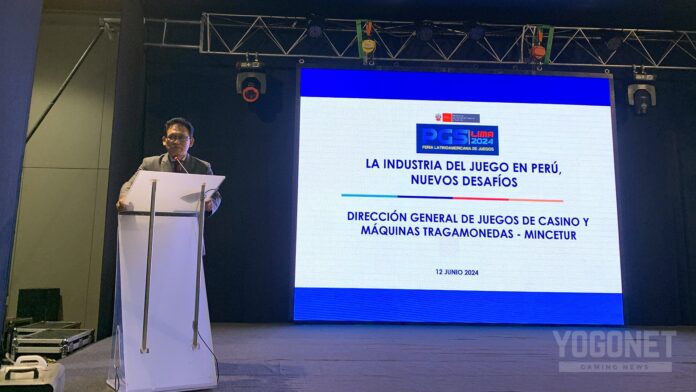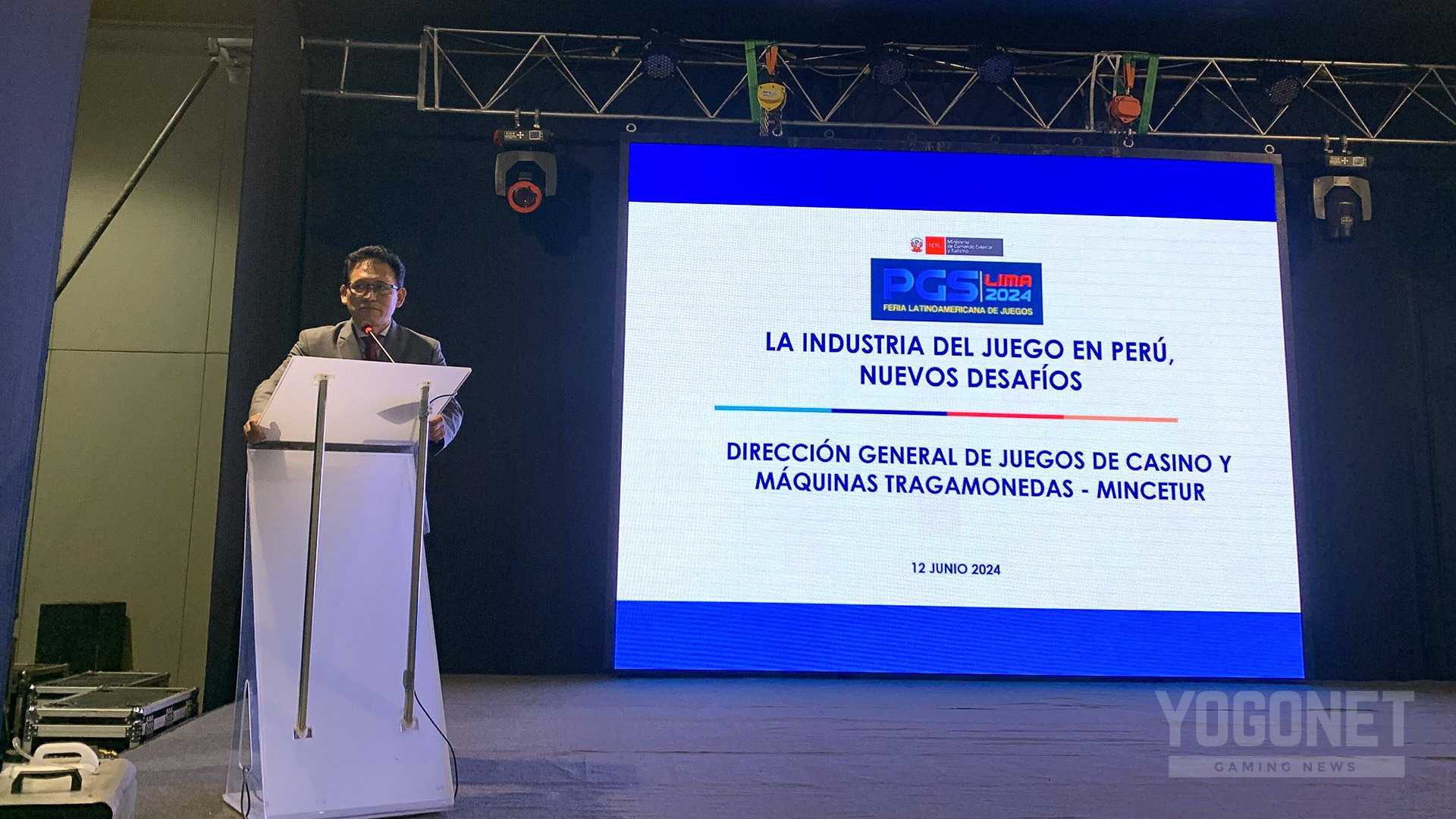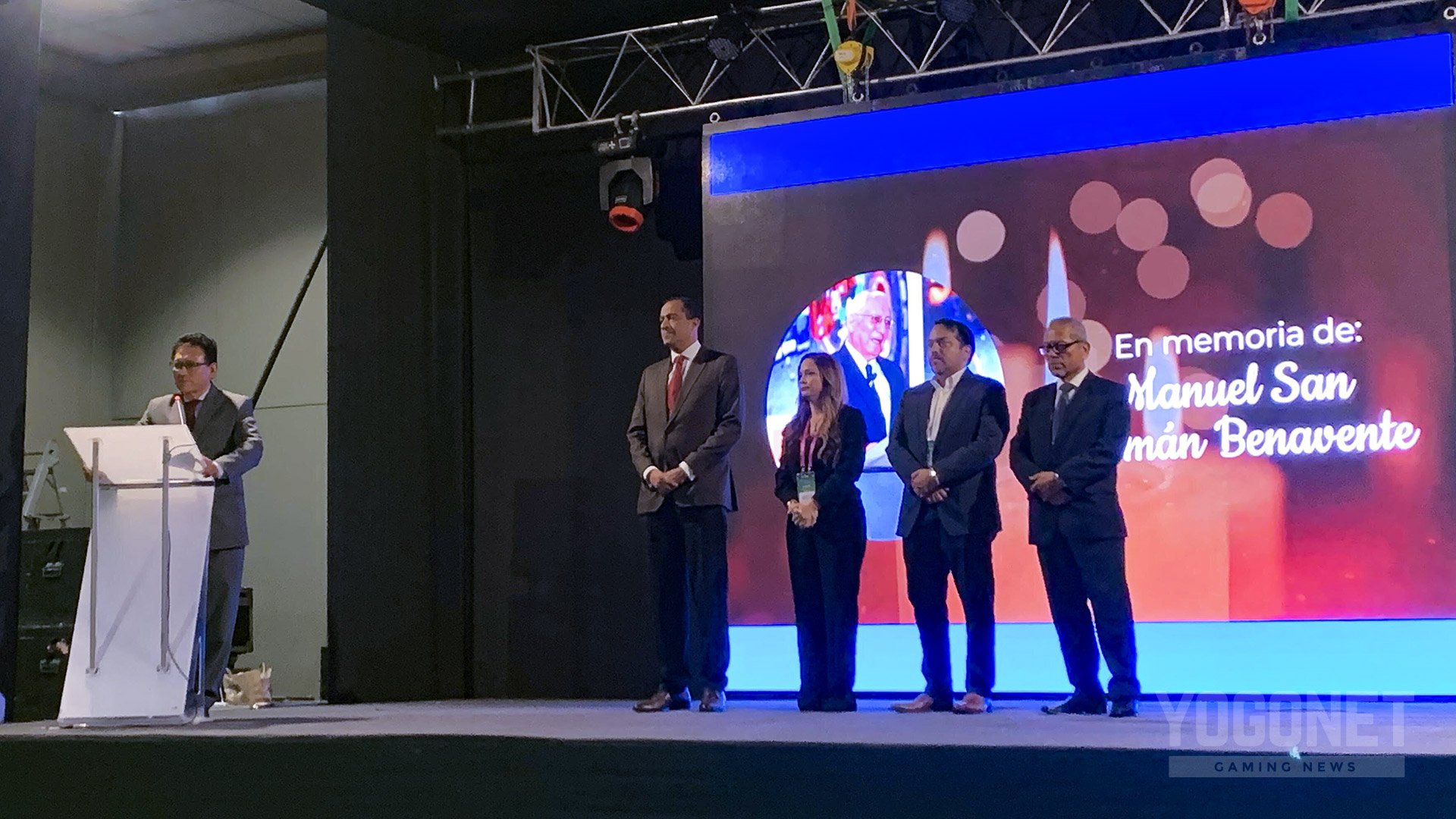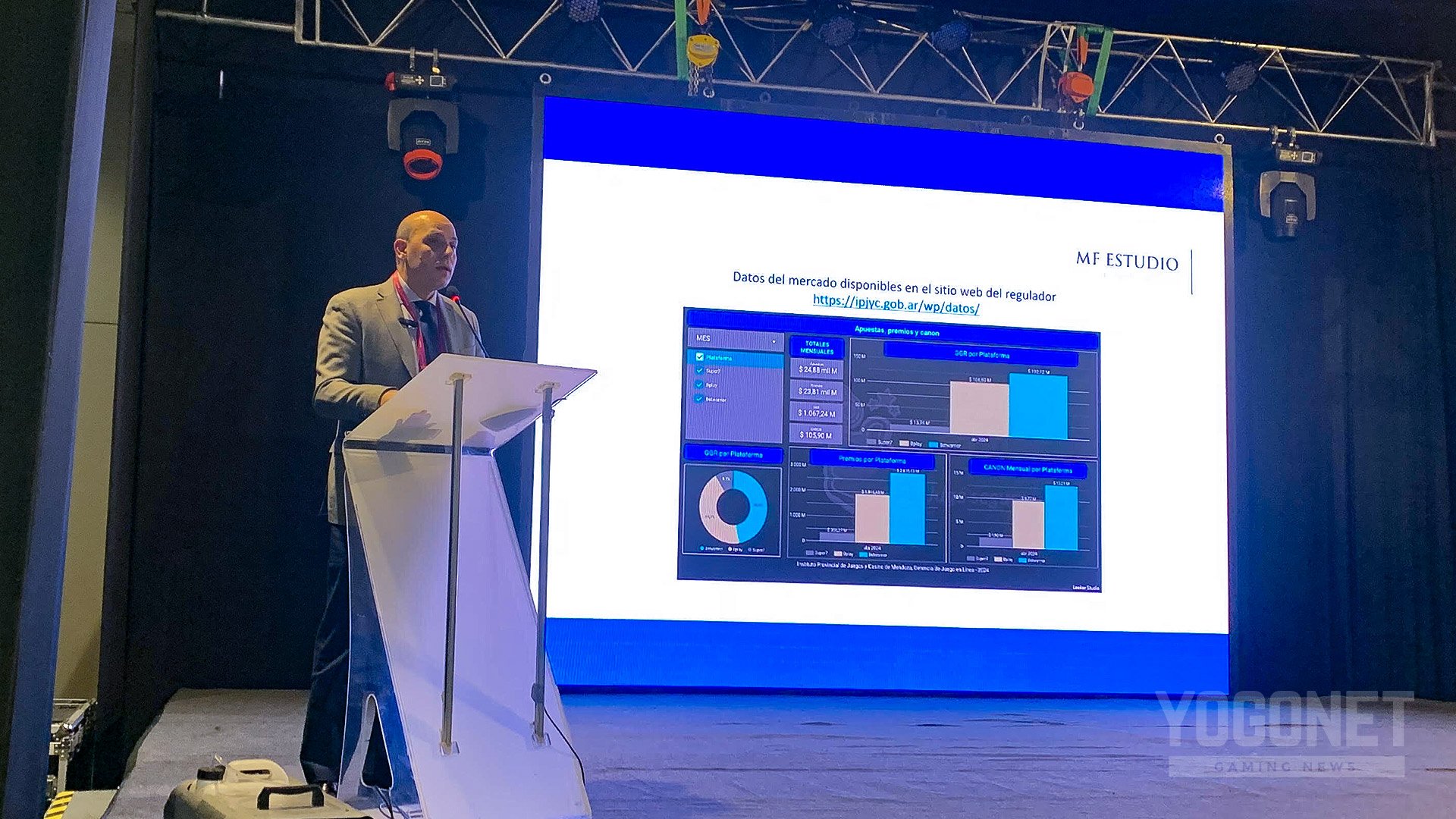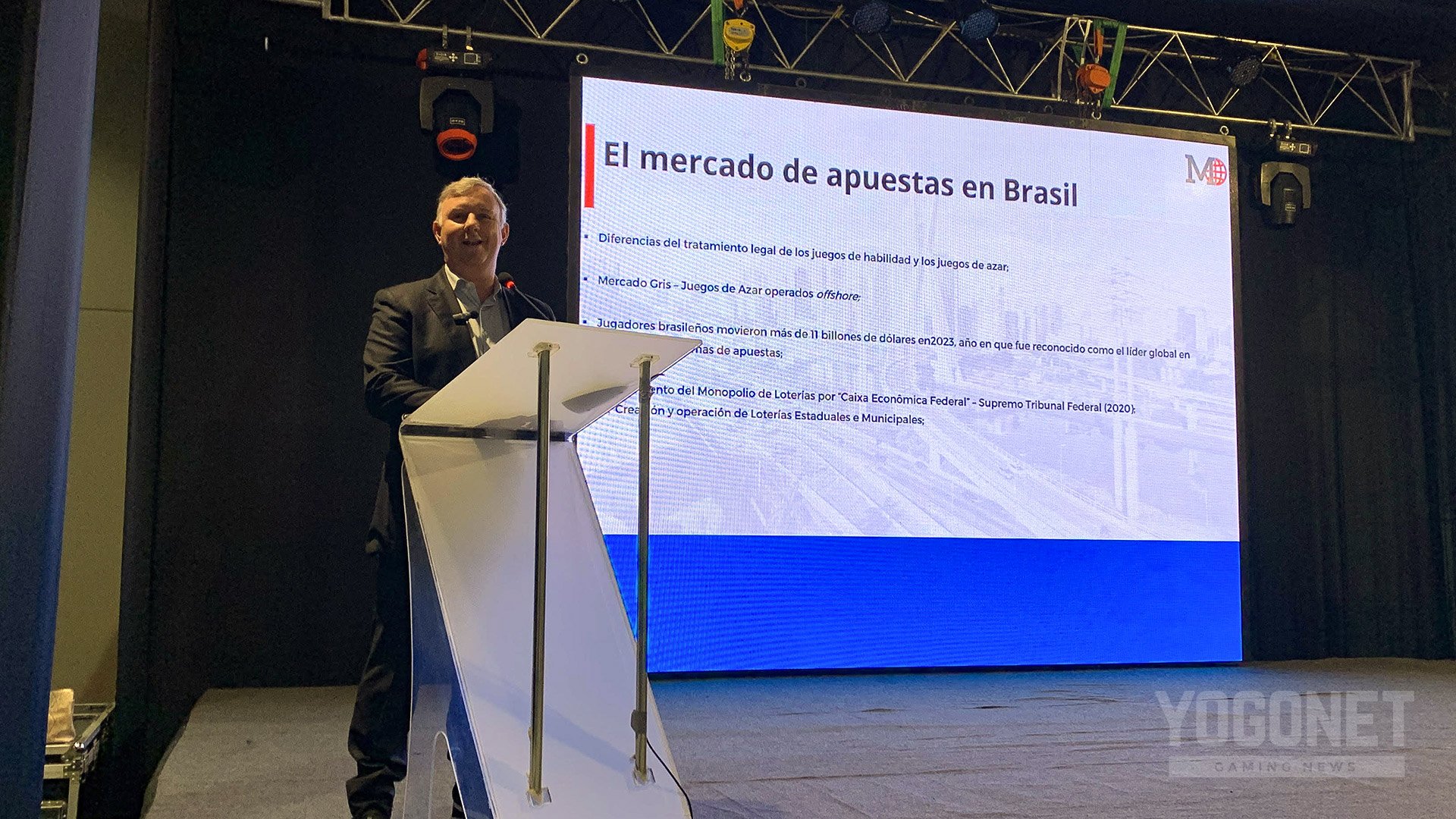The first day of the 21st edition of the Peru Gaming Show (PGS 2024) was focused on the current process of regularization of the online sector in Peru, both in its program of conferences and on the exhibition floor. In his speech, the Peruvian regulator, Yuri Guerra, announced that in June licenses should be granted to online gaming and sports betting operators that have complied with the requirements.
“When we talk about games of chance and slot machines and, now, online betting, we are talking about the most formal sector that exists in Peru,” said the Vice Minister of Tourism, Madeleine Burns, in her inaugural speech and before an overflowing hall that reached its maximum capacity during the day.
After this, the President of the Peruvian Gaming Association (APEJA), lawyer Constante Traverso, delivered the first conference of the day, entitled “Public Policy for the Regulation of Gaming in Peru”, in which he highlighted the need for the Peruvian State to promote a policy for the industry.
“We need to continue providing more jobs, more investment, and more tax revenue, but we need legal security and stability. This will only happen when the current Selective Consumption Tax regime, which has been causing a lot of damage to the activity, is corrected,” Traverso stated.
Online licenses in June
Afterward, the General Director of Casino Games and Slot Machines, Yuri Guerra, delivered his presentation “Current State of the Peruvian Market, a Mature and Regulated Market”, in which he highlighted the iGaming regularization process carried out by the Ministry of Foreign Trade and Tourism (Mincetur).
Yuri Guerra
“This regulation of sports betting and remote gaming is dynamic, practical, simple, and very modular. […] Surely there are some adjustments and improvements to be made in time, but we believe it is one of the best regulations and we are proud of that because we have worked together, we have sat down with each one of you, as a team work with the private sector,” he said.
Based on this, he pointed out that 80 companies presented a total of 145 applications for the operation of online gaming and sports betting. He added that, out of this total, 60 have been evaluated, resulting in 43 authorized and 17 ineligible for a license.
“This month [June] we should finish what we are missing. This month should be the month in which all the companies that have submitted the documentation and that comply should have their authorization. Those that have not complied are going to have to close operations,” Guerra announced.
Regarding the land-based sector, he pointed out that “the activity of casinos and slot machines is a successful activity because both the businessmen and the regulator sit at a table to try to propose alternative solutions to the problems they encounter.”
Regarding the control of said sector, Guerra highlighted that in 2023, 6.345 visits were made, which generated 96 sanctioning procedures and 14 operations for the closing of illegal gaming halls. Up to May 2024, 2.655 inspection visits were made, resulting in 17 sanctioning procedures and two closure operations.
Operators’ position
On the other hand, the President of the National Gaming Society (SONAJA), Fernando Calderón, spoke on “Consequences of the Online Gaming Regulation Process in Peru”, in which he urged not to make “the same mistakes as in the land-based gaming sector” regarding the formalization process of iGaming.
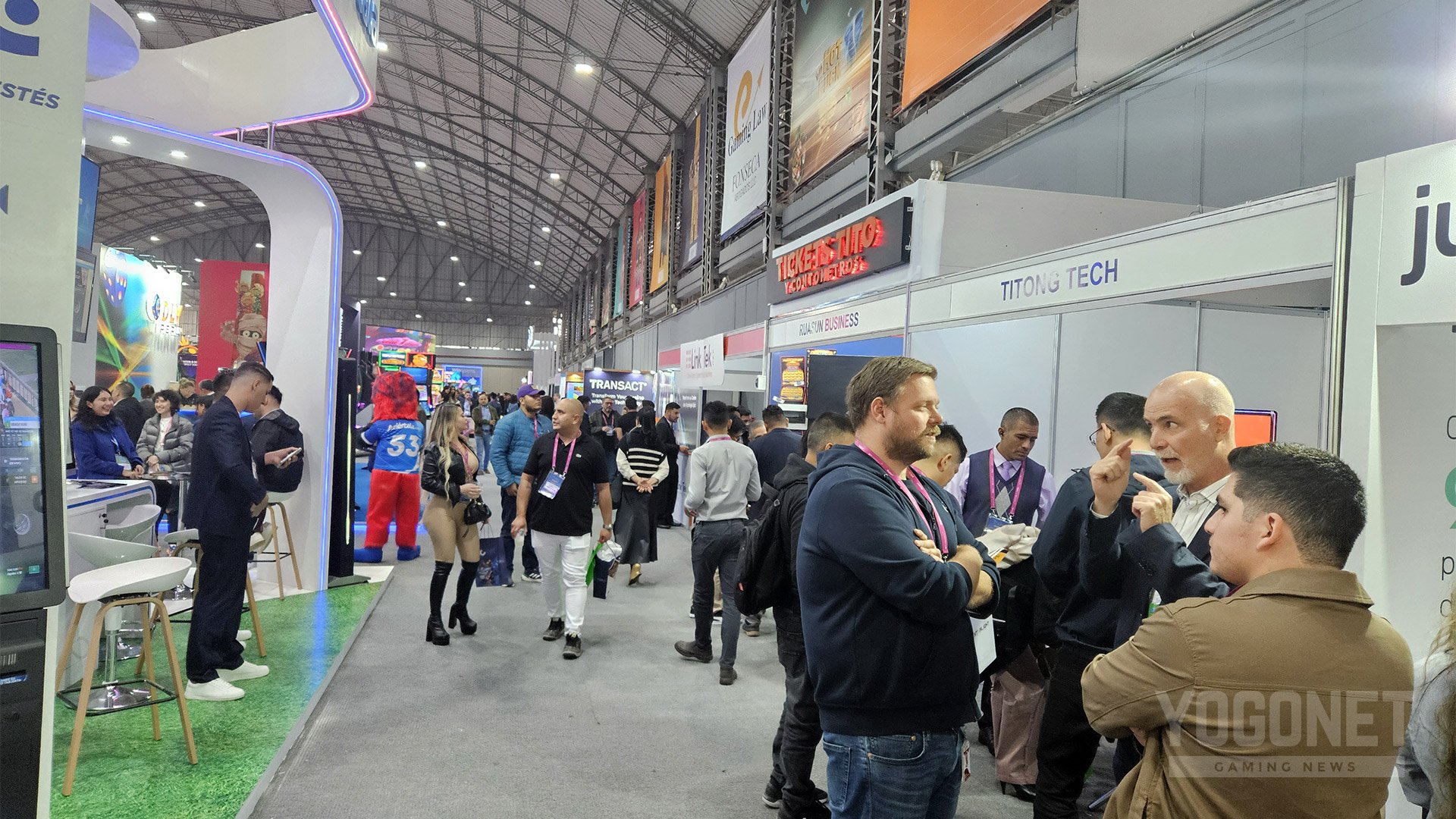
“All platforms and operators must be committed to the fact that if we have any service that has not complied with the regulation, we cannot be reciprocal and comply with the contract we have, because they are telling us that they cannot continue to operate,” he proposed.
Gonzalo Rosell, President of the Association of Online and Related Sports Betting (APADELA), gave a presentation on “New Challenges of Remote Gaming after Regulation in Peru”, in which he stressed “the need for legal predictability” for the sector.
He indicated that “clarifications are still required” from the National Superintendence of Customs and Tax Administration (SUNAT) “to make effective the payment of the 12% special tax” demanded by online operators.
“We hope that the tax issue is cleared up, that there are no modifications to continue contributing to the growth and dynamism of the local market, always respecting and safeguarding responsible gaming”, he added.
Tribute to Manuel San Román Benavente
Finally, he emphasized that APADELA remains open “to continue receiving applications from members” to further strengthen the association, with a focus “on contributing positively to the development of the industry.”
Tribute and Argentine and Brazilian cases
The first day of the PGS 2024 conferences also featured a tribute to the memory of Manuel San Román Benavente, the recently deceased former Peruvian regulator. The event was attended by organizer Rubén Solórzano; regulator Yuri Guerra; SONAJA President, Fernando Calderón; GLI Vice-President for Latam, Karen Sierra; and CEO of Apuesta Total, Gonzalo Pérez.
Tomás García Botta
Subsequently, attorney Tomás García Botta, partner at MF Estudio & Abogados, gave a presentation titled “Law and Regulation in Argentina, Similarities with Peru, Challenges and Opportunities”, in which he offered a regulatory overview of the Argentine federal reality and its 24 jurisdictions.
In his presentation, Botta highlighted the cases of the city of Buenos Aires and the provinces of Buenos Aires, Córdoba, and Mendoza. He also raised as a market challenge the need for an inter-jurisdictional policy, which currently only operates between the provinces of Salta and Jujuy.
Neil Montgomery
On his part, attorney Neil Montgomery, founding partner of Montgomery & Associados, spoke on “The Awakening of the Giant: Regulation of Remote Gaming in Brazil”, in which he gave a legal overview of the regulation of gaming in Brazil and how, since Lula da Silva’s last term in office, sports betting has been regulated.
Montgomery explained that the companies have until December 31, 2024, to regularize their situation according to the established norms, which foresee an operation license that, besides demanding a series of technical requirements, requires the payment of BRL 30 million, equivalent to $5.55 million.
Finally, Optimove’s VP of Marketing, Rony Vexelman, delivered the talk “Maximizing AI, the Evolution of Roles in iGaming,” in which he emphasized the potential of Artificial Intelligence for the future of the online industry. “The future of iGaming needs platforms that maximize multi-potentiality,” he concluded.
PGS 2024 – Conferences









